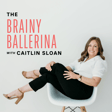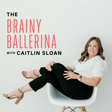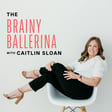
32. Seeing the Big Picture in a Dance Career (and Beyond!) with Igor Burlak
Igor Burlak danced professionally with Miami City Ballet, Kansas City Ballet, Atlantic Southeast Ballet and as a principal with Minnesota Ballet. Since retiring from the stage, Igor has had an extensive career working as a Company Manager, Ballet Master, Choreographer, Instructor, Realtor and Photographer.
We covered SO MUCH in this episode, from Igor’s training at the School of American Ballet to appearing in THE Center Stage. We get expert tips on taking a great dance photo, dealing with onstage snafus and transitioning into a brand new career outside of the dance world. Plus, Igor spills the secret behind the magical moving bed in NYCB’s Nutcracker. This episode truly has it all!
Key Moments:
- Early dance training at the School of American Ballet [1:40]
- Igor’s transition from student to professional [3:40]
- How Igor began teaching and choreographing [5:27]
- What he hopes to instill in his students as an instructor [7:20]
- The biggest hurdles dancers are facing today [8:23]
- Igor’s work as a dance photographer and his tips for dancers to feel more comfortable in front of the camera [9:32]
- How he transitioned into a new career as a realtor [14:43]
- Dancing as an extra in Center Stage [18:05]
- Dancing in the iconic filmed version of the NYCB Nutcracker [19:04]
- Advice for dancers dealing with a mistake on stage [20:42]
- His biggest piece of advice for dancers pursuing a career [28:30]
Connect with Igor:
WEBSITE (real estate): www.igorburlakrealestate.com
WEBSITE (photography): igorburlakphotography.com
Links and Resources:
Get your copy of The Ultimate Audition Guide
1-1 Career Mentoring: book your complimentary career call
Let’s connect!
My WEBSITE: thebrainyballerina.com
INSTAGRAM: instagram.com/thebrainyballerina
Questions/comments? Email me at caitlin@thebrainyballerina.com


